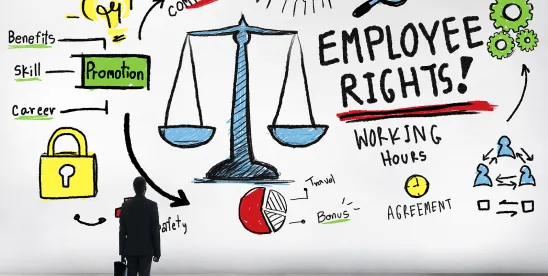On July 31, 2024, the Michigan Supreme Court revived two 2018 voter-initiated laws aimed at increasing the state’s minimum wage and expanding earned sick time for workers. In doing so, the Court held that the Michigan Legislature’s “adopt-and-amend” process—adopting the initiatives and then in the same session significantly altering them—“violated the people’s constitutionally guaranteed right to propose and enact laws through the initiative process” under the state constitution. The decision has major implications for Michigan’s workplaces, especially considering the revived laws, with some adjustments explained below, will go into effect February 21, 2025.
Michigan’s minimum wage is currently $10.33 per hour. The Supreme Court’s decision will result in a new minimum wage scale set to go into effect early next year. Starting on February 21, 2025:
- The minimum hourly wage will be $10.00 plus the state treasurer’s inflation adjustment, using July 31, 2024, as the endpoint for that calculation. The tipped wage will be 48% of minimum wage.
- February 21, 2026 (originally 2020): The minimum hourly wage will be $10.65 plus the state treasurer’s inflation adjustment, using July 31, 2024, as the endpoint for that calculation. The tipped wage will be 60% of minimum wage.
- February 21, 2027 (originally 2021): The minimum hourly wage will be $11.35 plus the state treasurer’s inflation adjustment, using July 31, 2024, as the endpoint for that calculation. The tipped wage will be 70% of minimum wage.
- February 21, 2028 (originally 2022): The minimum hourly wage will be $12.00 plus the state treasurer’s inflation adjustment, using July 31, 2024, as the endpoint for that calculation. The tipped wage will be 80% of minimum wage.
- February 21, 2029 (originally 2023 and after): The state treasurer will calculate the inflation-adjusted minimum wage as set forth by statute. The tipped wage will no longer exist.[1]
Revival of the Earned Sick Time Act (currently known as the Paid Sick Leave Act) means employees will accrue one hour of paid sick time for every 30 hours worked, with a maximum of 72 hours per year (40 hours paid for small businesses, plus 32 hours unpaid). This sick time can be used for personal or family illness, medical appointments, and issues related to domestic violence or sexual assault. Unused sick time can be carried over to the next year, and employers must inform employees of their rights and maintain accurate records. Companies should also be aware that the Act applies to virtually all employers. Although the new law allows employers to require reasonable supporting documentation when absences exceeded three days, it generally precludes employers from interfering with an employee’s attempt to use the accrued sick time. Finally, the Act establishes a private cause of action for violations and creates a presumption of retaliation if an adverse action is taken shortly after an employee’s use of earned sick time.
Next steps for employers:
Employers should begin examining their employee handbooks and company policies regarding sick leave, paid time off and minimum wages, so they are ready to and adjusting them to comply with the new laws slated to take effect early next year.
Should you have any questions on how the Michigan Supreme Court’s decision impacts your workforce, please contact your Miller Canfield attorney or one of the authors of this alert.
[1] While the Supreme Court’s intent is clear, it appears that the discussion concerning the new minimum wage scale is meant to reference “tipped wage” rather than “tipped credit.” See fn. 23 of the court’s opinion. Federal law authorizes employers to count a portion of tips received by tipped employees as a credit towards the federal minimum wage.






 />i
/>i
